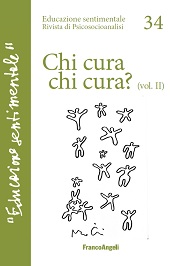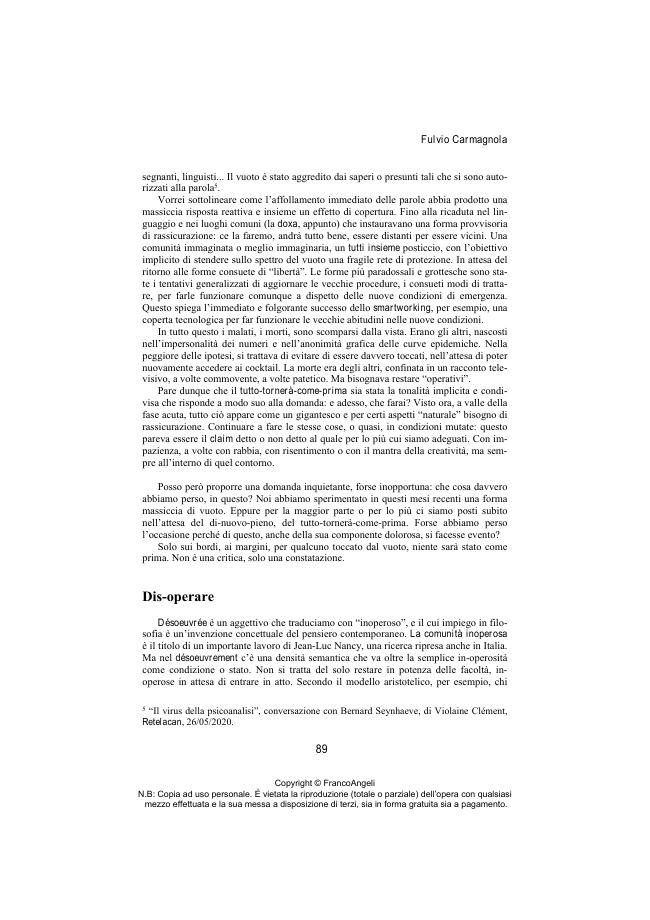Saperci fare, con il vuoto
P. 84-93
Questo scritto parla dell'evento come occasione etica. L'evento non è ciò che accade ma ciò che nell'accadere ci chiama singolarmente alla scelta etica. Ciò che accade è solo l'occasione, l'occursus (B. Spinoza). L'evento richiede una situazione singolare di attenzione capace di raccogliere, in ciò che accade, un segno o "ciò che ci fa segno" (G. Deleuze). L'occasione (occursus) per questa riflessione è stata la vicenda Covid, con le conseguenze che ne sono derivate. È stata un "evento" o un semplice, terribile, occursus? Il secondo punto riguarda il tempo dell'evento: credo sia un tempo vuoto, una discontinuità, una frattura che contiene una domanda. L'istante (hexaiphnes) dell'evento convoca il soggetto a una scelta etica. [Testo dell'editore]
To have a way with the emptiness. My purpose is to think about "event" as ethical chance. Event is not simple occurrence (Spinoza's occursus). We must consider, among several hab-its that take place in our everyday life, event as "a sign inside what happens, facing my own oneness" as Gilles Deleuze claims. So, was Covid a real event? Or a simple, even if tremen-dous, occursus? This is the first question I put. My second main issue is about time: how is time in event? Can we consider it as a result of a "project"? Opposite, I argue it's an empty time, similar to platonic hexaiphnes (instant), a sort of timeless between, breaking the tradi-tional arrow of time we usually experience, where "nothing takes place" (Deleuze). Finally, event as between-time, requests an ethical choice for each of us, as a single subject. Moreo-ver, a real event "makes us" as subjects. So, what's an ethical behaviour? To be able to face an empty space of time among the crowd of habits and occurrences. [Publisher's text]
Ist Teil von
Educazione sentimentale : 34, 2, 2020-
Artikel aus derselben Ausgabe (einzeln erhältlich)
-
Informationen
ISSN: 2037-7649
THEMENBEREICHE
KEYWORDS
- Ethics, event, empty-space-of-time, Covid, Deleuze, Proust



